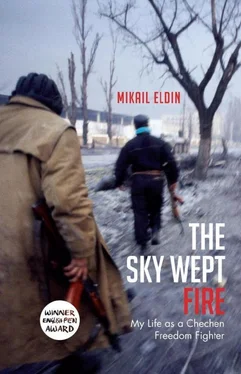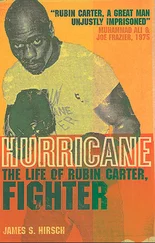And so the city prays. Through the rare silence. Through the sad music. Through the black tears of the smouldering ruins. Through the whispered prayers of its defenders. And not a single person dares commit the sacrilege of interrupting the prayer of the great city sentenced to death. After this fantastical music, after the tenuous panpipe, whose trembling sound has faded from the airwaves like the dying moans of a wounded bird, you listen along with the others for several moments to the silence. Then you hear a quiet, almost whispered, ‘Thank you’ – and the psychological battle between deadly enemies ceases for this one extraordinary night. The Sky grants the city respite until dawn. And at dawn, as if ashamed of the night of silence, it will cover the city in a cloak of fire.
From time to time the city would experience a lull, if you can call the soft banter between the mortar men and gunners a lull. The defenders would try to make the most of this time. They’d go about their day-to-day business: replacing the tired fighters in the trenches at the first line of defence, washing and mending their clothes and boots, stocking up on food and ammunition. Despite the winter, the city was full of mud. The smog from the blazing industrial plants, the dust from the bombed houses and buildings, the streets and roads ripped up by bombs: all were a source of mud, and there had always been mud in the trenches and dugouts. Under such conditions, the problem of personal hygiene soon arose. For a while I would simply warm up some water on the wood-burning stove which I used for cooking, and I would wash in some secluded spot. This was hardly the same as a bath or shower, but it allowed me to maintain basic hygiene. But one day a comrade came and invited me to go for a wash. When we got to the place, I was quite astonished to find a long terrace hung with rows of hoses and pipes gushing with hot water. Under this improvised communal shower the fighters were washing themselves and laundering their clothes. It turned out that since Soviet times, water from a hot mineral spring located right in the city centre had been routed here through a pipe for drainage, and the fighters had adapted it to their needs. The salts in the water made it unfit for drinking, but for washing it was perfect. The high mineral content made the water an excellent disinfectant. It was piping hot – around 80°C as it emerged from the conduit – so the showers had been set dozens of metres beneath the pipe. This ensured it cooled to the desired temperature. On almost any given day, even under the most horrific of bombardments, you would see fighters washing there. And they would carry on doing so right until the breakout from the besieged city.
The streets of the city painted a terrible picture, worse than the scenes of even the wildest sci-fi movie. One street had a vast cavity from a bunker-buster, and at the bottom of the cavity sat a UAZ jeep. It had fallen in during the night; the driver hadn’t noticed the hole. At night-time, the few cars moving about the city would drive with their lights off because of the blackout. On another street in the city centre, a tall sewer pipe was jutting into the air; a bomb had ripped it out of the earth and left it upright. And from the top of the pipe swung the corpse of a man hanged for his activities as an FSB agent. How they managed to hang him from such a height was not clear; there were certainly no cranes in the city. When you moved about the city, it looked dead; even the stray dogs had dwindled. The occasional resident and the military patrols were the only reminders that the city still contained life and was continuing to fight.
Sometimes it was possible to visit old friends from before the war who’d chosen the difficult path of the warrior and had stayed to defend the capital. One unit was led by a poet famed throughout Chechnya; among its men were a scholar and a singer-songwriter. It was a cultural unit, and their small headquarters became a kind of cultural and intellectual centre for besieged Grozny. We often gathered there. We’d discuss the situation, talk about the way out of the war crisis. We would analyse what was happening and debate which path Chechnya should take in human history. And of course, more often than not, we would simply recite poems, listen to the singer playing his songs, and we’d talk about world literature. And yet no one released them from combat duties. In addition to their frequent visits to the positions across the city for cultural activities, they had to freeze in the icy trenches alongside all the defenders of the capital and repulse the enemy attack in their defensive sector. Like everyone else, they too lost comrades. The time spent with them, the recollections of peaceful pre-war life, the talks we had in our circle about poetry, music and art would help you to forget, if only for a short time, where you were. It was a kind of psychological escape. They were luckier than I: all of them were in the same unit. I only got to visit them from time to time. But for me, under those conditions, that was already quite something.
By mid January 2000, it became clear that soon either the attackers would storm the city or the defenders would break out of the capital. Both sides were in a strategic stalemate. In military and political terms, continuing to hang on to the city had long ago ceased to make sense. The capital no longer had any symbolic, strategic, political or propaganda value. Besides, the resistance forces outside the capital were clearly not sufficient to counter the Russian troops’ slow but stubborn encroachment into the mountains. The Russian command was making active use of its airborne troops, attacking the rear of the resistance and seizing the commanding heights. It was clear that the fighters outside the Grozny ring did not have the capacity to fight effectively both the advancing troops and the airborne paratroopers. This left the far more battleworthy group in Grozny in considerable danger. So the command of the resistance made the decision to withdraw them from the encirclement.
The main problem was that after the breakout – assuming all went according to plan – the group would have to traverse many kilometres of enemy-controlled territory to get to the mountains. The shortest route to the unoccupied zone was twenty-five kilometres as the crow flies. But that route would have been suicidal: it was open fields all the way, and tightly controlled by enemy troops. The Russian aviation and artillery would be certain to massacre the entire group. So they chose a route that was longer and trickier but offered a better chance of crossing without exorbitant losses.
For the enemy command, a breakout was only to be expected, but nevertheless it came as a surprise. That is, they were waiting for it to happen, they knew we had little choice but to try to escape the encirclement, and there was not much time left – if we’d waited just a bit longer, there’d have been nowhere for us to go. That’s why they were in no hurry to storm Grozny, fully aware of how such a bold move on their part would play out, while they waited for the breakout to happen some time soon. It was just that they didn’t know when; the command of Grozny’s defence maintained absolute secrecy as they prepared the breakout.
At the end of January the rank-and-file defenders of the capital discovered they’d be leaving the city. They only learnt which sector had been chosen for the breakout just before beginning the journey. And so on 30 January through to 1 February 2000, the 7,000 strong Grozny force, divided into three groups, began their escape from the city that they had successfully defended for several months. [43] The battle for Grozny lasted from November 1999 until February 2000.
Fighters from the commandant’s office were in charge of the route reconnaissance and the breakout itself, and they were the last to flee the city. When they left Grozny, enemy forces were already in the capital and going on the rampage. [44] According to the human-rights organization Memorial, on 5 February 2000, in just one small village, Novye Aldy, on the outskirts of Grozny, Russian soldiers killed over fifty civilians during a ‘cleansing operation’.
The first column contained 2,500 fighters. They had strict orders not to engage with the enemy and not to return fire. This order may at first seem strange, but it was given for a sound reason. If we had answered fire with fire, as the first group to leave, we would not only have betrayed our locations and given away our true numbers, but we’d have become bogged down in battle and held up the breakout, thus condemning to a ‘heroic death’ our comrades who were still stuck in the city. And there were 4,500 of them, including many of our very finest warriors. If the Russians had discovered how few of us there were in the besieged city and how many were breaking out on the first night, their troops would have been able to prevent the rest from leaving.
Читать дальше












